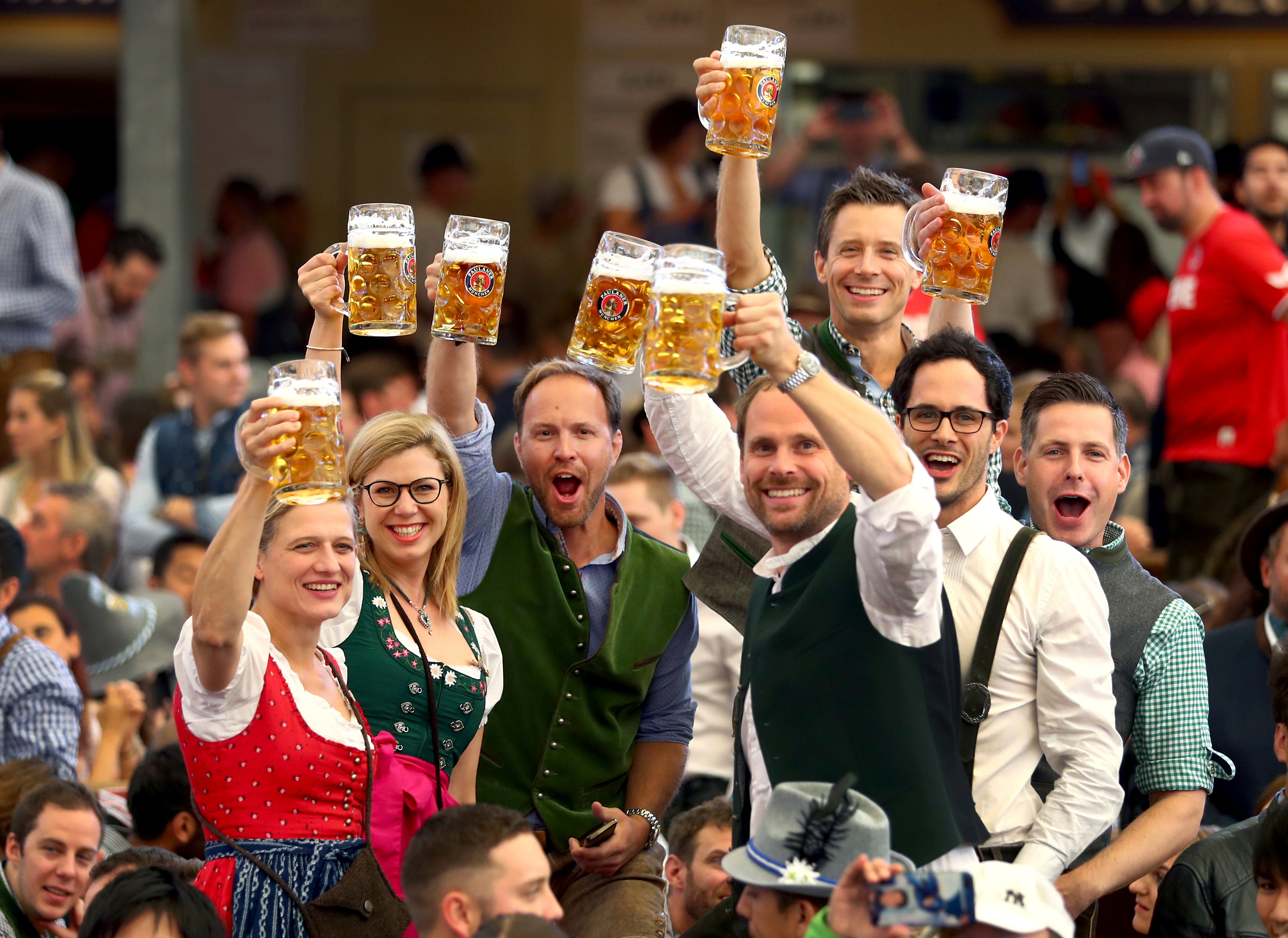Munich's Oktoberfest finally back on after pandemic pause
Germany's annual Oktoberfest festival is finally on again for this fall, following a two-year hiatus due to the coronavirus pandemic

Your support helps us to tell the story
From reproductive rights to climate change to Big Tech, The Independent is on the ground when the story is developing. Whether it's investigating the financials of Elon Musk's pro-Trump PAC or producing our latest documentary, 'The A Word', which shines a light on the American women fighting for reproductive rights, we know how important it is to parse out the facts from the messaging.
At such a critical moment in US history, we need reporters on the ground. Your donation allows us to keep sending journalists to speak to both sides of the story.
The Independent is trusted by Americans across the entire political spectrum. And unlike many other quality news outlets, we choose not to lock Americans out of our reporting and analysis with paywalls. We believe quality journalism should be available to everyone, paid for by those who can afford it.
Your support makes all the difference.Germany's annual Oktoberfest festival is finally on again for this fall, following a two-year hiatus due to the coronavirus pandemic, the head of the famous Bavarian beer festival said Thursday.
“The Wiesn will take place,” Clemens Baumgaertner told reporters in Munich using the locals' Bavarian colloquialism for the Oktoberfest which is referring to the big lawn, or Wiese, where the boozy celebrations are taking place.
He said said the popular beer festival in the Bavarian capital will be held without any pandemic restrictions from Sept. 17 to Oct. 3 — Germany’s national day.
“It will take place like we know it from 2019, and not in any other way,” Baumgaertner added.
The Oktoberfest, first held in 1810 in honor of the marriage of Crown Prince Ludwig of Bavaria to Princess Therese, has been canceled dozens of times during its more than 200-year history due to wars and pandemics.
In the years before the coronavirus outbreak, around 6 million revelers visited the celebrations annually, many of them dressed in traditional Bavarian garb — the women in Dirndl dresses, the men in Lederhosen, or knee-length leather trousers.
Some 487 beer breweries, restaurants, fish and meat grills, wine vendors and others will be present and opening hours will be even longer than in the past, with the first beer tents opening at 9 a.m. in the morning and closing at 10:30 p.m. The last orders will be taken at 9:30 p.m.
A one-liter (two-pint) mug of beer will cost between 12.60 and 13.80 euros ($12.84-14.07) this year, which is an increase of about 15% compared with 2019, according to the official Oktoberfest homepage.
Typical Bavarian dishes sold at the Oktoberfest will include specialties such as the “slaughter plate” with blood and liver sausage and pork belly; pork roast with crunchy skin, bread dumplings and sauerkraut; slices of roasted ox or braised venison ragout with homemade spaetzle pasta.